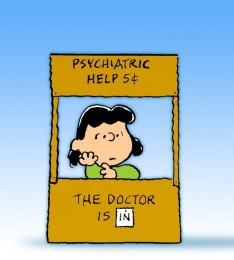How To Make Your 30s Work For You, Money-Wise

At the end of last year, when we sent out a call for questions, several people replied with emails or comments about retirement. Reader AB summarized what it seemed like many people were thinking when she asked:
1. In your 20s (I’m 28) do I need to be saving more for retirement then maxing out my Roth IRA at 5500 each year?
2. How do I make small savings (2–5K, separate from the emergency liquid fund) work for me? I hate having it evaporate in my savings account (grr .01% interest) but I want to be able to have access to that money in 2–4 years.
“Need” is a harsh word, but yes, if you can save for retirement beyond what you put in your IRA, do it. Mark Manson on Quartz recently wrote a post collating wisdom from people 37+ and the #1 thing they told him about what they would say to people about to turn 30 is to save more.
The most common piece of advice — so common that almost every single email said at least something about it — was to start getting your financial house in order and to start saving for retirement… today.
Life happens in your 30s: you may make more as you partner up and/or advance in your career; but you might also get laid off, have children, go to grad school, move, buy a house, have to deal with the death of your parents, or face any of a number of other challenges that make you put saving on hold.
Because habits take a while to form, it’s useful to get started as early as possible. Manson cites some horror stories, in case you need extra inducement:
there were the readers who were just completely screwed by their inability to save in their 30s. One reader named Jodi wishes she had started saving 10% of every paycheck when she was 30. Her career took a turn for the worst and now she’s stuck at 57, still living paycheck to paycheck. Another woman, age 62, didn’t save because her husband out-earned her. They later got divorced and she soon ran into health problems, draining all of the money she received in the divorce settlement. She, too, now lives paycheck to paycheck, slowly waiting for the day social security kicks in. Another man related a story of having to be supported by his son because he didn’t save and unexpectedly lost his job in the 2008 crash.
If you can save more as a 28 year old, do it. Do you have a 401(K) or a 403b through work? Make use of that. Also, if you can afford even one visit with a financial advisor — and some of them are much more affordable than you’d guess — it will make you feel much more confident about putting your retirement house in order. You’ll also, on average, save more and more wisely.
Can you get a “high-interest” online savings account? These aren’t what they were, of course; the fondness with which I remember my actual pre-crash, high-interest ING Online Savings Account roughly equals the fondness with which some people think of the Clinton years or that time they saw the Rolling Stones live. Still, ~1% is better than .01%.
Similarly, if you can find a CD that offers more than 1% and you don’t need the cash for a year or two, try it. I made good money in CDs back in the day. The combination of CDs and high-interest online savings was how I was able to put together a down payment for the apartment.
But you’re thinking about it! You have some cash in emergency savings, and some in your IRA, and some more that you’d like to do more with. You’re in excellent shape.
Support The Billfold
The Billfold continues to exist thanks to support from our readers. Help us continue to do our work by making a monthly pledge on Patreon or a one-time-only contribution through PayPal.
Comments